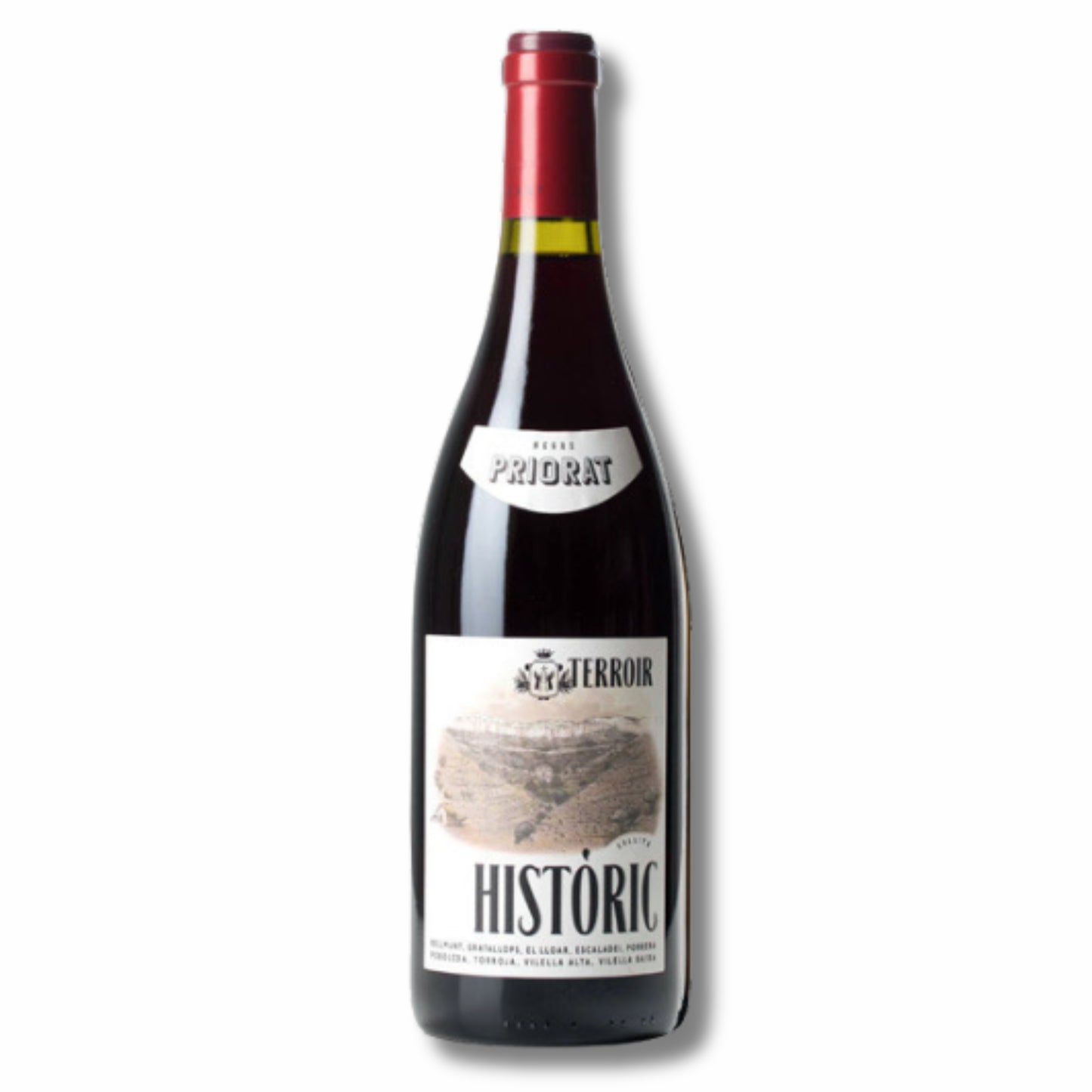Harnessing the simple, honest power of great fruit means a truly hands-off approach in the winery: hand-harvested, the whole bunch fermented naturally, and transferred to a stainless steel tank for six months. No extraction, no oak. Crisp aromas of red fruits like pomegranate and hibiscus, fennel, and blackberry are enhanced by savory smoky accents. Fine-grained tannins shape the balanced palate, making it juicy and luscious. Wine at its most basic and beautiful.
Terroir al Limit Historic red wine
Terroir al Limit Historic red wine
Terroir al Limit
Pickup available at Calle Castelar 3
Usually ready in 24 hours
Harnessing the simple, honest power of great fruit means a truly hands-off approach in the winery: hand-harvested, the whole bunch fermented naturally, and transferred to a stainless steel tank for six months. No extraction, no oak. Crisp aromas of red fruits like pomegranate and hibiscus, fennel, and blackberry are enhanced by savory smoky accents. Fine-grained tannins shape the balanced palate, making it juicy and luscious. Wine at its most basic and beautiful.
Vintage: 2020
DOCa: Priorat
Aging: Carbonic maceration
Type of grape: 75% Red Garnacha, 25% Cariñena
Alcohol content: 13.50%
Recommended consumption temperature: 16-18ºC.
Bottle capacity: 750 ml.
Winery: Terroir al Limit ( Torroja del Priorat, Tarragona )
Terroir Històric Negre nace con una misión: animar a los jóvenes viticultores del Priorat a volver a sus raíces y trabajar las viñas familiares de forma ecológica. Este tinto es un homenaje al paisaje de Torroja y su entorno, elaborado únicamente con las variedades tradicionales Garnacha y Cariñena.
La vinificación sigue un enfoque radicalmente respetuoso: vendimia manual, racimos enteros, fermentación espontánea y una crianza breve en acero inoxidable. Nada de madera. Nada de artificios. Solo fruta sincera y paisaje líquido.
En copa se muestra fragante y expresivo, con notas de granada, hibisco, mora y un fondo de hinojo y humo que le da complejidad. Los taninos, de grano fino, moldean un paso por boca ágil y sabroso. Un vino con nervio, frescura y belleza sencilla.
Visual: Color cereza brillante con ribete violáceo.
Nariz: Aromas de fruta roja fresca (granada, hibisco), con toques de hinojo silvestre y un fondo sutilmente ahumado.
Boca: Boca jugosa, fluida y con estructura equilibrada. Taninos finos, acidez viva y final refrescante.
Añada: 2020
D.O.: Priorat
Envejecimiento: Maceración Carbónica
Tipo de uva: 75% Garnacha Tinta, 25% Cariñena
Graduación alcohólica: 13,5% vol.
Temperatura de consumo recomendada: 16-18ºC.
Capacidad de la botella: 750 ml.
Bodega: Terroir al Limit (Torroja del Priorat, Tarragona)
Compartir

¿Sabías que...?
La maceración carbónica es una técnica vinícola tradicional que, aunque popularizada en regiones como Beaujolais (Francia), tiene raíces que podrían remontarse a la antigüedad.
Los romanos, en sus prácticas vinícolas, posiblemente descubrieron este método de manera accidental al fermentar uvas enteras en ambientes saturados de dióxido de carbono, lo que inducía una fermentación intracelular.
Aunque no se realizaba de manera sistemática, este proceso primitivo pudo haber sido una de las primeras formas de vinificación sin intervención de la madera.
Hoy en día, esta técnica genera vinos frescos, afrutados, con taninos suaves y una textura sedosa, que expresan la pureza de la fruta, sin la intervención de la madera.
Suscríbete a nuestra Newsletter
Suscríbete a nuestra Newsletter para estar a la última con nuestros productos, además de recibir un montón de recetas y consejos de cocina!!


